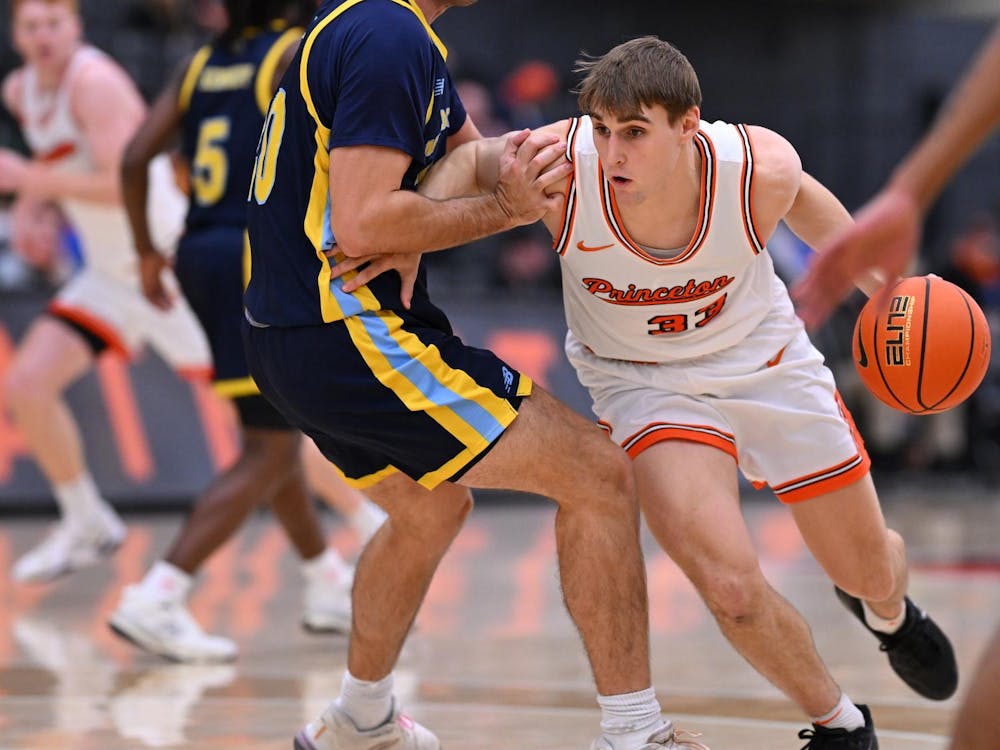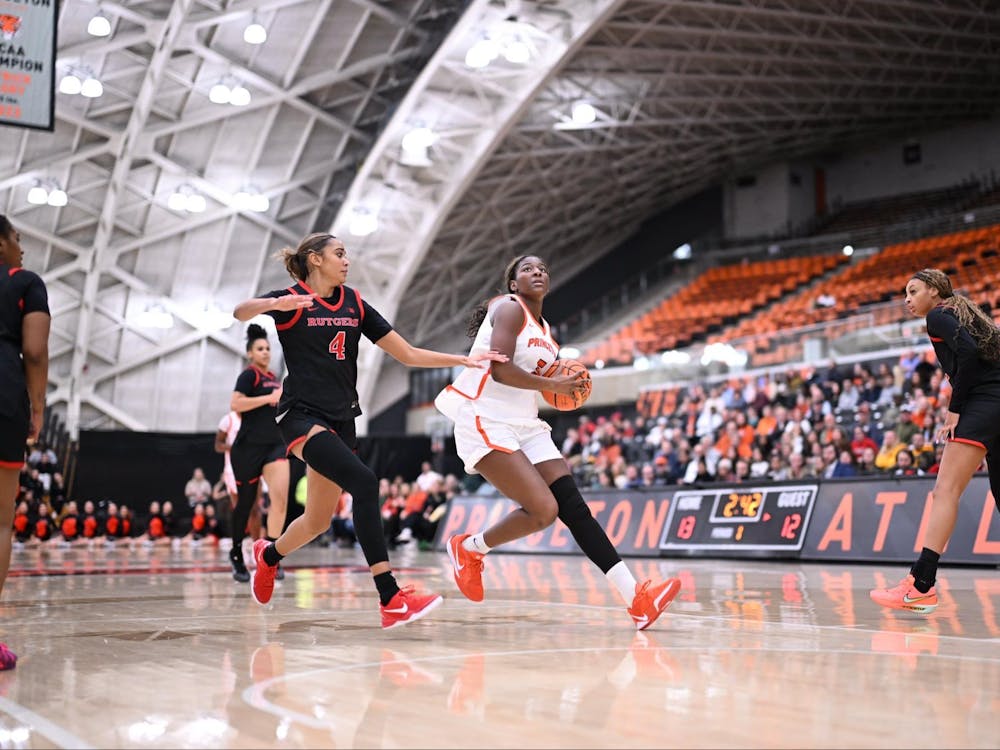T
ake a look at the best collegiate men’s squash players in America, and you’ll see a lot of experienced faces. The top players for No. 1 Trinity, No. 3 Rochester and No. 5 Harvard are all seniors with plenty of matches under their belts. But in this selective group is a younger face, Princeton freshman Todd Harrity. And up to this point in the season, nobody has defeated him yet.
Harrity has been playing in the No. 1 position for the Tigers since their first match of the season, and he currently boasts a perfect 7-0 record against some of the top players in the nation. The freshman’s presence at the top of the rotation has helped lead No. 4 Princeton to a 7-2 record despite a number of injuries to key players. The Tigers’ two losses have been 5-4 nailbiters to Rochester and No. 2 Yale.
“I’m really proud to have [the No. 1] spot,” Harrity said. “Most importantly, I’m proud to have the opportunity to play people from other schools that are at the top of their teams as well, so I get really good matches.”
Most of Harrity’s matches this season have been far from dramatic. He cruised to 3-0 victories in each of his first six contests and only played one game that went past 11, defeating Nils Mattsson of No. 14 Navy 11-8, 11-5, 12-10.
Though he has faced his share of veterans, the one player that has tested Harrity this year has been a fellow Ivy League freshman. In a match against Yale last weekend, Harrity took a 2-0 lead, but his opponent, Kenneth Chan, would not go down easily. Chan became the first player to take a game from Harrity this season, winning the third 11-6 and then eking out a 12-10 victory to force a deciding fifth game. The Tiger made sure there would be no further suspense, rolling 11-2 to take the match.
“[Chan] is a very good player, so he was able to hang in there and play a good game,” head coach Bob Callahan ’77 said. “But the important thing was ... the way Todd responded in the sudden-death game.”
Both Callahan and Harrity named the freshman’s mental toughness as his biggest strength, an attribute that was clearly on display when he rebounded to defeat Chan.

“Getting through that match and knowing that I can pull through in really close matches gives me confidence,” Harrity said. “It’s those close matches, when you barely pull through, that make you a better player.”
Harrity will need that confidence in the next few weeks, as the Tigers prepare to face No. 9 Dartmouth and Harvard this weekend before facing 11-time defending champion Trinity and No. 10 Williams the following weekend.
Princeton has won four consecutive Ivy League titles, but will need to win both their remaining conference matches and get some help to repeat that, as both the Crimson and the Bulldogs are undefeated in the league.
Harrity said he has been particularly looking forward to the matchup against Harvard. His final decision of which school to attend came down to Princeton and Harvard, and on Saturday he will get to face Harvard’s Colin West, the second-ranked individual player in the country.

“I’ve played [West] before, and I’ve struggled at times, but I feel really good about my chances in this match,” Harrity said. “It’s been a match I’ve been thinking about all season, and I’ve been practicing for it for a long time. He’s a senior [and] I’m a freshman, so it’s my only opportunity to play him and beat him.”
Harrity’s coach has some scary news for future opponents, particularly underclassmen, when he says that the freshman still has room for improvement.
“He’s working on his attacking skills — to get better at putting opponents under more pressure — and on getting used to playing different styles of opponents,” Callahan said.
“There’s lots of stuff still to learn, but he’s doing better than we ever thought he’d be able to do,” Callahan added.
Harrity graduated from the Episcopal Academy in Philadelphia, the same secondary school that Callahan attended. Harrity also played tennis and ran cross-country, but he focused mainly on squash after winning his first tournament when he was 12.
He has played tournaments all over the world, including the World Junior Squash Championships in New Zealand, Switzerland and, most recently, India. At last summer’s championship, Harrity battled back from a two-set deficit in the round of 16 and was one point away from reaching the quarterfinals, a feat that no American has accomplished. However, Farhan Zaman of Pakistan recovered to win the final game 12-10, ending Harrity’s run.
“I’ve been really lucky in that I’ve been able to visit these places through squash,” Harrity said.“It would have been a big opportunity to win that match and be the first American to make it to top eight. But I take a lot with me from that tourney and experience. You can’t win them all, and I’m happy about how it went.”
Though he still has plenty of time left at Princeton, Harrity said he may let squash take him places again after he has completed his studies. He is considering joining the Professional Squash Association once he graduates, which plays matches primarily in Europe but also in the United States and Canada.
“I would love to go to Europe after college,” he said. “Here, I’m working very hard on my studies and also working hard on my squash, so it would be nice to take a few years to go live in Europe and play on the pro squash tour ... I’m good at competing and everything, so it would be really fun and exciting to see how far I could go.”







